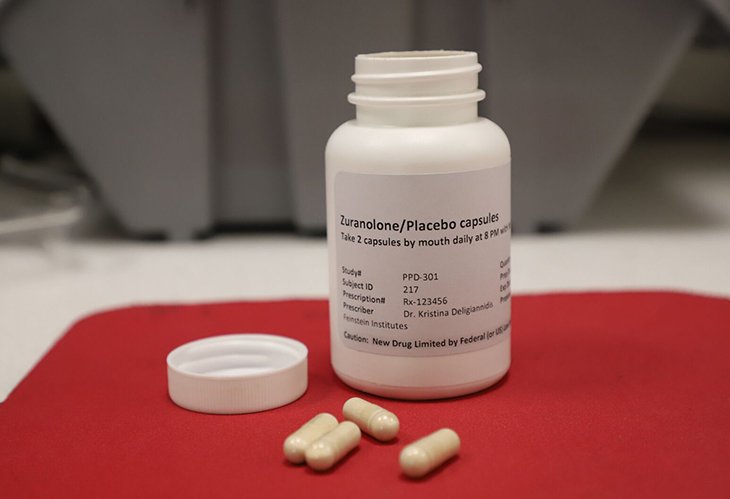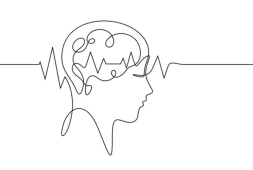
Zuranolone, marketed as Zurzuvae, has secured approval from the U.S. Food and Drug Administration (FDA) as the inaugural fast-acting pill for addressing postpartum depression.
This milestone marks the FDA’s endorsement of the first oral medication designed to swiftly alleviate symptoms of postpartum depression (PPD), providing an innovative solution for those seeking rapid relief.
Zuranolone (Zurzuvae) becomes the second FDA-sanctioned treatment for PPD, succeeding brexanolone (Zulresso). While both medications share the same active ingredient, zuranolone stands out as an orally administered alternative. In contrast, Zulresso necessitates intravenous administration over a 2.5-day period within a hospital setting due to the associated risk of excessive sedation or loss of consciousness, as emphasized by the FDA. Notably, individuals undergoing Zulresso treatment cannot be left unattended with their children due to the potential for sudden loss of consciousness, as per FDA guidelines.
“There is a great need for treatments that work quickly to relieve the suffering from depressive disorders,” said Samantha Meltzer-Brody, MD, MPH. She is the Assad Meymandi Distinguished Professor and Chair of the department of psychiatry and the director of the Center for Women’s Mood Disorders at the University of North Carolina in Chapel Hill. She was involved with clinical trials for the said drug. “In postpartum depression, the mother is caring for an infant and the time sensitivity for rapid onset of action is very important.”
According to FDA guidelines, it is advised to take Zuranolone once daily in the evening with a high-fat meal for a duration of two weeks. The recommended daily dosage is 50 milligrams (mg).
Clinical trials evaluated by the FDA before approval demonstrated that Zuranolone can rapidly alleviate depressive symptoms within a few days. Doctors suggest that some patients may experience lasting relief from symptoms by adhering to a two-week course of Zuranolone.
In contrast, Mayo Clinic notes that conventional antidepressant treatments may take up to six weeks to achieve full effectiveness.
Zuranolone Works Vs. the Traditional Antidepressants
Dr. Meltzer-Brody describes zuranolone as a rapid-acting antidepressant distinguished by its unique mechanism of action. Classified as a neuroactive steroid within a novel category of medications, it is thought to operate by restoring equilibrium to dysfunctional networks of neurons or messenger cells in the brains of individuals experiencing depression. This insight is provided by Biogen and Sage Therapeutics, the creators of zuranolone, who state that the targeted networks are intricately linked to mood, cognition, behavior, and arousal, as outlined in their recent news release.
“This is a very different approach to treating clinical depression,” said Kristina Deligiannidis, MD. She is the director of women’s behavioral health at Zucker Hillside Hospital and a professor of psychiatry at the Hofstra/Northwell Zucker School of Medicine in Hempstead, New York. She studies depression treatments and was part of the clinical trials arranged for zuranolone.
“For many patients, they may only need a short, acute treatment course followed by close monitoring for any return of depressive symptoms rather than taking an antidepressant chronically for many months or years,” says Dr. Deligiannidis.
Alternative antidepressants may require weeks or even months to achieve optimal effectiveness, necessitating a gradual adjustment of doses by doctors until the appropriate amount is determined to alleviate symptoms, notes Deligiannidis. Additionally, individuals often find themselves needing to maintain these medications for extended periods, sometimes spanning years.
One commonly prescribed category is selective serotonin reuptake inhibitors (SSRIs), believed to impact the brain chemical serotonin, a key regulator of mood, as outlined by the Mayo Clinic. Examples of SSRIs include fluoxetine (Prozac), paroxetine (Paxil, Pexeva), sertraline (Zoloft), citalopram (Celexa), and escitalopram (Lexapro).
Another analogous option belongs to the serotonin and norepinephrine reuptake inhibitors (SNRIs) family, encompassing medications such as duloxetine (Cymbalta, Drizalma Sprinkle), venlafaxine (Effexor XR), desvenlafaxine (Pristiq), and levomilnacipran (Fetzima). Mayo Clinic suggests that SNRIs operate on both serotonin and norepinephrine in the brain, contributing to mood improvement.
Clinical Trials Show Zuranolone Treated Postpartum Depression Symptoms in 3 Days
In the SKYLARK study, a late-phase clinical trial involving almost 200 women with postpartum depression (PPD) and sponsored by Sage Therapeutics, participants were randomly assigned to receive either a daily 50 mg zuranolone pill or a placebo pill for a two-week duration. According to a joint news release from Biogen and Sage Therapeutics, those who took zuranolone exhibited significantly greater relief from symptoms compared to participants who received the placebo.
Remarkably, individuals who took zuranolone showed substantial symptom reduction after just three days, a consistent improvement throughout the treatment period, and sustained results for 30 days post-treatment, as stated in the press release.
The findings, published on July 26, 2023, in the American Journal of Psychiatry, utilized the 17-item Hamilton Depression Rating Scale (HAM-D) to assess symptom relief. On average, individuals taking zuranolone experienced a reduction of approximately four additional points on the HAM-D compared to those on the placebo. The HAM-D scale ranges up to 52 points, with a score exceeding 17 indicating moderate depression and exceeding 24 indicating severe depression.
Most of the side effects associated with zuranolone were mild to moderate and included symptoms such as excessive sleepiness, dizziness, sedation, headache, nausea, and diarrhea, among others.
Sedation is the main side effect of concern with zuranolone, says Meltzer-Brody. “But this has not been severe in the majority of patients who have taken zuranolone in clinical trials,” she also said.
Zuranolone Not for Major Depressive Disorder
Biogen and Sage Therapeutics sought FDA approval for zuranolone to address major depressive disorder (MDD), commonly referred to as clinical depression. However, the FDA declined approval for MDD, issuing a complete response letter. This letter signifies that one or more supplementary studies are required to establish the drug’s efficacy for this particular application, as stated in a joint announcement by the co-manufacturers.
Black Box Warning About Driving While Under Zuranolone Influence
Zuranolone is subject to a black box warning, the FDA’s designation for the most severe side effects. This advisory instructs individuals using the medication to refrain from driving or operating heavy machinery for a minimum of 12 hours after each dose. The FDA emphasizes that patients taking zuranolone might struggle to discern the extent of their impairment while under the influence of the drug, potentially affecting their capability to drive safely.
Zuranolone Availability
Zuranolone is anticipated to be on the market by late 2023, as per the collaborative announcement from Sage Therapeutics and Biogen. However, neither company has revealed pricing details for zuranolone.



